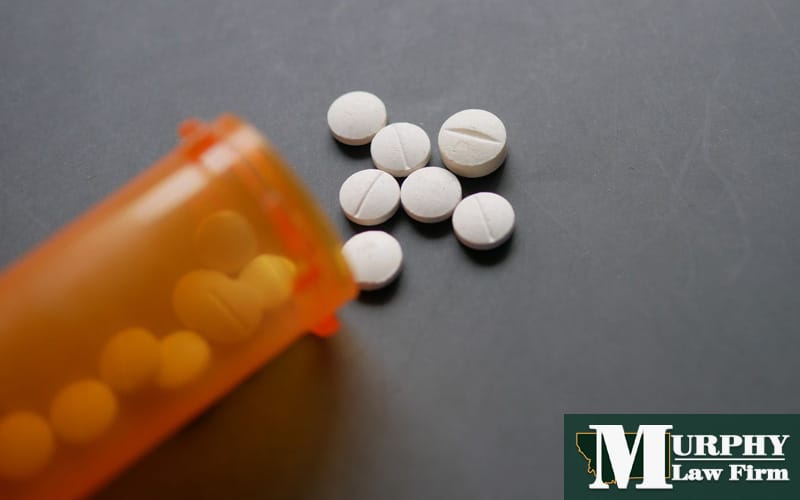
Learn how to file a lawsuit if you developed a serious side effect after taking heartburn medication
Heartburn is a burning sensation in your chest that results from stomach acid backing up into the esophagus, known as acid reflux. Proton-pump inhibitors (PPIs) are a class of drugs used to treat heartburn and acid reflux, but these drugs can have serious side effects that everyone taking them should be aware of.
This article will discuss these dangerous side effects and explain when you may be eligible to file a personal injury lawsuit if you’ve been affected.
Heartburn and proton pump inhibitors
Heartburn’s burning sensation is usually caused by stomach acid leaking into the esophagus.
The esophagus is the track for food and liquids to the stomach. A valve called the lower esophageal sphincter (LES) separates the esophagus from the stomach. It opens to allow food and water to enter the stomach and closes to prevent stomach contents, including acid, from backing up in the esophagus.
When the LES is not functioning properly, stomach acid leaks back into the esophagus. While stomach acid doesn’t harm the stomach, it can burn in the esophagus.
If the leaking persists, the acid can eventually cause long-term damage to the esophagus. Proton pump inhibitors are drugs that are often used to treat acid reflux and prevent such damage.
What are proton pump inhibitors?
The first proton pump inhibitor (PPI), Prilosec (omeprazole), came on the market in 1988. This drug and others like it, including Prevacid (lansoprazole), Aciphex (rabeprazole), and Nexium (esomeprazole), work by limiting the production of stomach acid, which reduces acid reflux and its symptoms.
The stomach has cells that produce enzymes (known as proton pumps), which secrete acid into the stomach. PPIs serve to inhibit these enzymes. But stomach acid serves a purpose in the digestive system.
Importantly, PPIs do not cure acid reflux caused by a malfunctioning LES. They only reduce stomach acid production to inhibit the amount of acid leaking through the LES into the esophagus. In some severe cases, surgery is indicated to repair the LES.
Common health issues treated by proton pump inhibitors
PPIs are prescribed to prevent and treat acid reflux, stomach ulcers and gastroesophageal reflux disease (GERD). GERD is a condition that can result if acid reflux persists over an extended time.
PPIs are also frequently prescribed to treat the following:
- Esophagitis (inflammation of the esophagus)
- Zollinger-Ellison Syndrome (tumors in the pancreas or the small intestine)
- Helicobacter pylori infection (a bacterial infection in the stomach)
- Pediatric GERD and allergic eosinophilic esophagitis
- Gastritis, or an inflammation of the stomach lining
Side effects of PPIs
For a while, PPIs were thought to possibly cause stomach cancer. While those suspicions have been discredited, there are other side effects of concern. Generally, those side effects develop from either overuse or drug interactions.
PPIs are available over-the-counter. Some people who get relief assume there is no such thing as too much of a good thing. Prilosec OTC instructions warn, “Do not take Prilosec OTC for more than 14 days or more often than every 4 months unless directed by a doctor.”
Risks associated with taking PPIs
The following risks have been associated with PPIs:
- Fracture risk. Some research suggests that PPIs reduce the absorption of calcium leading to osteoporosis and increased risk of bone fractures.
- Pneumonia. Stomach acid normally inhibits the development of bacteria, so by reducing acid secretions, PPIs can create a favorable environment for bacteria that lead to pneumonia.
- Iron and B12 deficiency. Among the purposes served by stomach acid is the rendering of iron and vitamin B12 from food into forms that can be absorbed. Reduction in stomach acid interferes with that function. But this can sometimes be remedied with dietary supplements.
PPIs have also been linked to other serious issues, including:
- Stroke
- Heart attack
- Allergic reactions
- Pancreatitis
- Dementia
PPIs have also recently been linked to a significant increase in congenital heart problems and other deformities, such as cleft palate, in babies whose mothers took these drugs during their first trimester of pregnancy.
Kidney damage risks
There have been more than 15,000 lawsuits against PPI manufacturers claiming damages for kidney damage and other conditions. They include acute interstitial nephritis, which is a kidney lesion that impedes kidney function and is sometimes caused by drug therapy. These lawsuits have been supported by various studies.
Recent studies linking PPIs to severe diseases
There have been many recent studies that show PPIs increase the risk of developing certain diseases and illnesses:
- In 2016, BMC Nephrology reported that PPI drugs are linked to chronic kidney disease and acute interstitial nephritis. It occurs primarily in older people.
- An earlier study, published in 2004, also concluded that drugs are the most common cause of interstitial nephritis and that PPIs were commonly associated with the disease.
- In 2019, The BKJ published a study that found that PPI users were at a higher risk of death from cardiovascular disease, chronic kidney disease and gastrointestinal cancer.
- In 2020, the American Journal of Gastroenterology published a study that showed that users of PPIs were at increased risk of contracting COVID-19. The risk was lower among people who used H2 blockers (e.g., Tagamet).
Who is liable for a PPI injury?
The obvious target for a product liability lawsuit is the PPI manufacturer. However, others may also be liable in a personal injury lawsuit, including:
- Prescribing physicians
- Pharmacies
- Hospitals or other medical facilities
- Testing laboratories
In a PPI case, the most common liability is the manufacturer’s failure to adequately warn the consumers of the risks associated with PPIs.
Types of compensation for PPI injuries
Damages available in a personal injury lawsuit in Montana and other states include compensatory and punitive damages.
- Compensatory damages include medical costs, recovery of lost wages, pain and suffering and emotional distress.
- Punitive damages are awarded in cases where the defendant’s conduct was egregious. The purpose of punitive damages is to serve as a punishment and deterrent.
Personal injury claims require the plaintiff to prove that the defendant’s negligence or willful conduct was the proximate cause of the plaintiff’s injuries. However, some product liability cases are governed by the strict liability doctrine in which a manufacturer can be held liable without regard to negligence if the manufacturer knew the risk but marketed it to the public anyway.
Statute of limitations for PPI lawsuits in Montana
Personal injury cases in all states must be filed within a limited time after the injury occurs, is discovered, or should have been discovered. In Montana, the statute of limitations for a personal injury lawsuit involving product liability, medical malpractice or wrongful death is 3 years.
Failure to file a lawsuit within 3 years could prevent you from obtaining any compensation, so it’s always best to contact an experienced personal injury attorney as soon as possible if you suspect you’re suffering from an injury or illness caused by PPI use.
How to prove a PPI claim
A personal injury lawsuit requires you to prove that the defendant’s actions or inactions were the proximate cause of your injury. If you file a claim for damages from medical conditions caused by a PPI, you have the burden to prove the following:
- You suffered harm or injury. For legal purposes, the term “injury” may include pain, disease, organ failure or other abnormal medical condition.
- Your harm or injury was caused by the PPI. This includes proof that the drug was defective, falsely advertised or misrepresented. A PPI can be proven to be defective if there was a direct causal relationship between the PPI and your harm and the manufacturer knew of that link.
- Your harm was caused by the PPI and not some other cause. Normally, this is proven with the testimony of expert witnesses.
What to do if you have a claim against a PPI manufacturer
If you think you’ve been harmed as a result of your use of a PPI, you should immediately seek the help of an experienced personal injury attorney with a track record of drug cases.
While it would seem your first contact should be your doctor, if they prescribed the PPI, they are potential defendants. Your lawyer will recommend that you consult another medical professional.
Alternative treatments for heartburn
The Harvard Medical School recommends the following alternative ways to prevent or reduce acid reflux:
- Eat sparingly and slowly. A full stomach produces more stomach acid to reflux into the esophagus. Eating small portions more frequently minimizes stomach acid.
- Avoid certain foods. Some foods are more likely than others to trigger reflux. They include spicy or fatty foods, mint, garlic, tomatoes, onions, coffee, tea, chocolate and alcohol.
- Don’t drink carbonated beverages. They make you burp, which refluxes acid into your stomach.
- Stay up after eating. When you are standing or sitting upright, gravity holds acid in your stomach.
- Avoid vigorous exercise for a couple of hours after eating.
- Sleep on an incline with your head 6 to 8 inches higher than your feet.
- Lose weight. Too much weight burdens the muscles that support your esophageal sphincter, which closes off acid reflux.
- Stop smoking.
- Check for possible interactions with your medications.
Contact a Great Falls personal injury attorney
Proving that an injury, illness or disease was caused by a medication can be complicated. Manufacturers of these drugs have attorneys working to actively discredit these claims. An experienced personal injury attorney can consult medical experts and help you gather the necessary medical documentation to prove that your injury was directly caused by PPI use and get you maximum compensation.
If you believe you’re suffering from an illness or disease caused by a PPI medication, contact Murphy Law Firm. Our attorneys have extensive experience in personal injury claims and will fight to get you the money you rightfully deserve.
Contact us today for a free consultation of your case.



